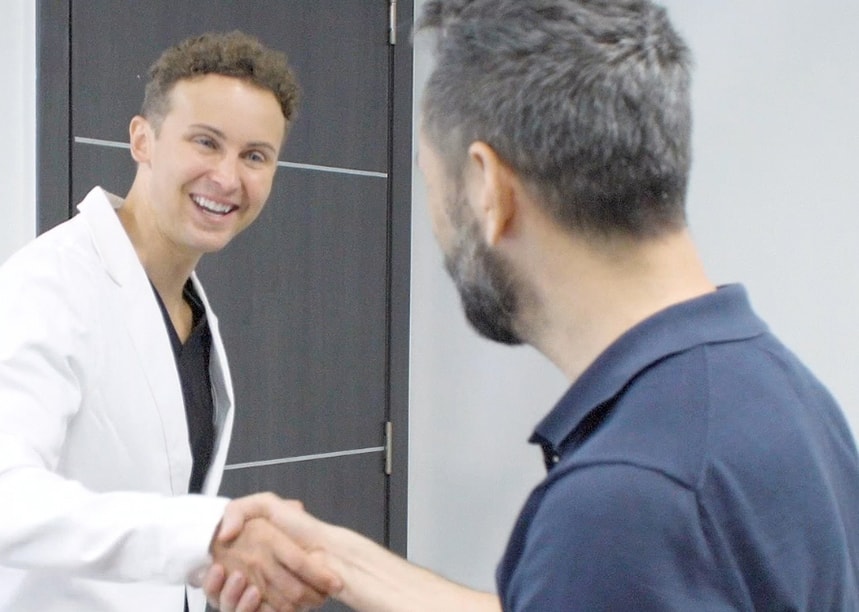5 Questions About Back Spasms, Answered by Board-Certified Sciatica Doc Near Me in West Orange
November 27, 2021
Back discomfort is one of the most frequent health problems. You’ve almost surely experienced it by now, whether it was acute or chronic pain, at some point in your life. If you did experience it more than once, you probably know that the severity of the discomfort might range from mildly irritating to severely agonizing. In more severe cases, back pain can leave some people pinned in bed and unable to go about their regular tasks, and it is frequently accompanied by neck pain, leg pain, or hip discomfort.
Back pain can be described in a variety of ways, but most people explain it as a sequence of spasms, which can prevent them from keeping an upright posture, leading to spine problems in the long term.

If your back spasms become so severe that you can no longer go on about your everyday life, you should book an appointment with a specialist as soon as possible. A well-trained back doctor will employ cutting-edge technology to identify what is causing the back spasms and offer a variety of treatment options to help improve your condition.
However, before making an appointment with a back specialist, you’re likely to have a lot of questions concerning back spasms. Fortunately, Dr George Hanna, a board-certified sciatica doc near me in West Orange is on call to answer all of your questions. Continue reading to find out more!
Question #1: What exactly is a back spasm?
Back spasms, like other spasms, are defined as involuntary muscular contractions. The muscles in the back are the ones at cause in this instance. These spasms can be caused by a variety of actions, but the most common reasons include injury, muscular exhaustion, and wear and tear.

Chronic back spasms can be triggered by an underlying condition in a small percentage of cases. Nerve damage may be at blame as well if your muscular spasms are really severe. In this scenario, your doctor may recommend minimally invasive procedures, such as steroid injections to reduce the discomfort.
Question #2: What can cause a back spasm?
Patients experience back spasms due to a variety of reasons, but the most common ones include:
Muscular strains
A muscular strain is a type of injury that happens when muscles are overworked – usually due to repetitive movements or age. Sudden movements, such as twisting, can also cause acute muscle strain injuries. They’re most common in the lower back, and they’re commonly followed by muscle soreness as the tissues get naturally repaired.
Herniated discs
Your spine’s discs are separated by cushions. A disc herniates when the outer layer of the disc fractures, bulging out of its original place and putting pressure on adjacent nerves. This produces pain, which might lead to muscle spasms. A herniated disc can occur as a result of overuse or injury.
Degenerative disc disease
Over time, your body experiences wear and tear. Ageing may have a severe effect on various parts of the body, such as the joints, causing joint cartilage to break down. This is known as degenerative disc disease, and while it may not have any apparent symptoms, it can eventually lead to discomfort and muscle spasms. This condition is a type of arthritis that affects joint cartilage.
Question #3: Should back spasms be a sign of worry?
Back discomfort and spams are rarely signs of a more serious condition, but if accompanied by certain symptoms, there may be some red flags. These signs and symptoms should be taken seriously, and you should seek medical attention for proper care.
If you’re experiencing all of the following symptoms at once, it may be an emergency, and you should get medical help right away:
- Numbness in the buttocks: This pins and needles feeling can be an indication of sciatica, but it might also be a sign of a serious spinal issue if it occurs near the groin region.
- Incontinence: If you can’t control your bladder movements because of spasms, it might be an indication of major nerve injury, which is generally caused by nerve compression or infection.
- Leg weakness and numbness: Any ailment that comes suddenly should be taken seriously. It might be a symptom of a serious spine problem that has reached the nerves if it happens in conjunction with back pain.
Question #4: Can back spasms be caused by sciatic discomfort?
Sciatica is a condition in which the sciatic nerve in your spine is inflamed or compressed, causing pain. Because this lengthy nerve also goes down your legs, it can produce discomfort all the way from your lower back to your toes, with varying degrees of intensity.
Sciatica is a symptom of a variety of diseases rather than being a condition itself. Herniated discs, for example, might exert pressure on a nerve, causing discomfort or spasms. An indication of sciatica might be if the pain is accompanied by numbness in the legs, discomfort that travels the length of the sciatic nerve, or weakness.
Question #5: Which type of treatments are available?
Back spasms can be treated if the underlying cause is addressed. Depending on whether you have acute or chronic pain, your treatment options may differ.
Over-the-counter medications, topical pain creams, heat and cold therapy, muscle relaxants, and light exercises are some of the most frequent treatments recommended for acute back pain. For most cases, these options will be sufficient to get patients back to their pain-free life.
Chronic pain, on the other hand, may necessitate stronger treatment options. Your doctor may recommend steroid injections, prescription medicine, physical therapy, or, in certain situations, the assistance of an orthopaedic surgeon, depending on the degree of your discomfort.
If back spasms give you trouble, it may be time to schedule an appointment with a doctor. Dr. Michael Nguyen and Dr. George Hanna lead a team of pain treatment specialists and help patients find the best possible treatment options for their needs. If you are looking for a pain clinic in West Orange, don’t hesitate to contact us! You can find a sciatica doc near you at our West Orange, NJ Pain Center near the Essex Country Club.
Book a Consultation
Scheduling a consultation with one of our pain treatment specialists is one of the best ways to determine the proper solution for pain relief.
Meet Our Team of Back Pain Specialists
All of our Pain Doctors in New Jersey are Harvard Trained and Board Certified in Pain Management

Back Pain Doctor Clifton & West Orange NJ
Dr. George Hanna
Dr. Hanna is a Harvard Trained back specialist in New Jersey and New York. He serves as Medical Director of Pain Management.

Back Pain Doctor Clifton & West Orange NJ
Dr. Laura Lombardi
Dr. Lombardi is a Harvard Trained back pain treatment doctor, currently seeing patients in Clifton and West Orange, New Jersey.

Back Pain Doctor Clifton & West Orange NJ
Dr. Shane Volney
Dr. Volney is a Harvard Trained back treatment doctor seeing patients in the NJ areas of Clifton & West Orange, and in NYC.

Back Pain Doctor Clifton & West Orange NJ
Dr. Michael Nguyen
Dr. Nguyen is Harvard Trained and Board Certified in Pain Management. His pain center accepts major medical insurances and Medicare.

Dr. George Hanna

Dr. Laura Lombardi
Dr. Lombardi is a Harvard Trained back pain treatment doctor, currently seeing patients in Clifton and West Orange, and Paramus New Jersey.

Dr. Shane Volney
Dr. Volney is a Harvard Trained back treatment doctor seeing patients in the NJ areas of Clifton & West Orange, and in NYC.

Dr. Michael Nguyen
Dr. Nguyen is Harvard Trained and Board Certified in Pain Management. His pain center accepts major medical insurances and Medicare.
